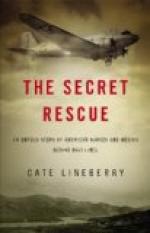“Whoa!” cried Neil. “Back up! Hello, Board of Strategy; how do you find yourself?”
“That was fine, Neil,” said Sydney.
“What?”
“That goal.”
“Glad you liked it. I was beastly nervous,” he laughed. “Had no idea I could do it. It’s so different trying goals in a game; when you’re just off practising it doesn’t seem to bother you.”
“Oh, you’ll do. Gale is growling like a bear because they took him out.”
“Is he?” asked Neil. “I’m sorry. Do you know whether he stands a good show for the game? Have you heard Mills or Devoe say anything about it?” Sydney shook his head.
“I’m afraid Gillam’s got us both boxed,” continued Neil. “As for me, I suppose they’ll let me in because I can sometimes kick a goal, but I’m worried about Paul. If he’d only—Farewell, they are lining up again.”
“I don’t believe Gale will get into the Robinson game,” thought Sydney as he took himself toward the side-line. “He seems a good player, but—but you never can tell what he’s going to do; half the time he just sort of slops around and looks as though he was doing a favor by playing. I can’t see why Neil likes him so well; I suppose it’s because he’s so different. Maybe he’s a better sort when you know him real well.”
After practise was ended and the riotous half-hour in the locker-house was over, Neil found himself walking back to the campus with Sydney and Paul. Paul entertained a half-contemptuous liking for Sydney. To Neil he called him “the crip,” but when in Sydney’s presence was careful never to say anything to wound the boy’s feelings—an act of consideration rather remarkable for Paul, who, while really kind at heart, was oftentimes careless about the sensibilities of others. This afternoon Paul was evidently downcast, too downcast to be even cross.
“Well, I guess it’s all up with me,” he said as they passed through the gate and started down Williams Street toward college. “I’m glad you’re back, chum, but I can see my finish.”
“Nonsense,” said Neil, “you’ll be back to-morrow. Gillam is putting up a star game, and that’s a fact; but your weight will help you, and if you buckle down for the next few days you’ll make it all right.”
But Paul refused to be comforted and remained silent and gloomy all the way home. Knowing how Paul had set his heart upon making the varsity for the Robinson game, Neil began to be rather worried himself. He felt, unnecessarily of course, in a measure responsible for the crowning of his friend’s ambition. When he had prevailed on Paul to relinquish the idea of going to Robinson, he had derided the possibility of Paul failing to make the Erskine team; and now that possibility was rapidly assuming the appearance of a probability. Certainly the fault was Paul’s, and not his; but the thought contained small comfort.
Next day’s practise, in preparation for Erskine’s last game before the Robinson contest, proved Paul’s fears far from groundless. Gillam, Neil, and Mason started work when the line-up was formed, and Paul looked on heart-brokenly from the bench. It was not until Neil had failed twice and succeeded once at field-goals, and Gillam had been well hammered by the second’s tandem plays, that Paul secured a chance. Then Neil was taken out and his friend put in.




